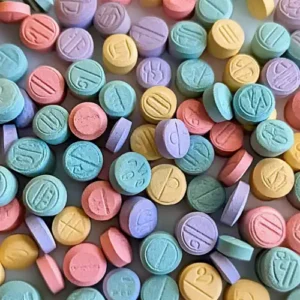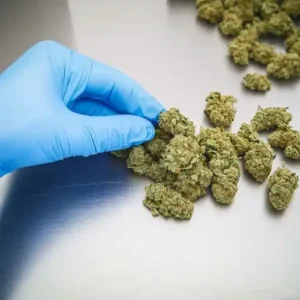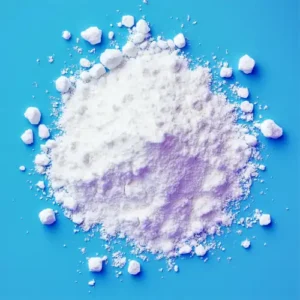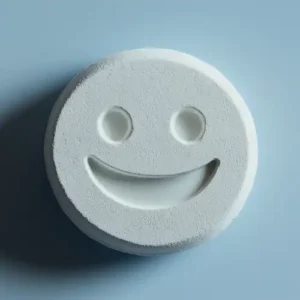A growing drug trend in UK jails has recently been identified. Synthetic Cannabis, often called “Black Mamba” or “Spice” has become an increasing problem in the institutions, with more and more prisoners using the drug and then developing health problems, either physical or mental ones.
The rise in popularity of Spice amongst the prison population can be attributed to the fact that it is relatively easy to smuggle inside of the building, especially if prison staff are not carrying our random tests on products that enter the prison which could contain synthetic cannabis.
Often Spice is smuggled in with rolling tobacco. It has no smell so it is hard to detect, even when it is being smoked.
In May 2014, The Guardian reported that 28 prisons now had a recognised problem with synthetic cannabis.
The History of Spice
Cannabis of this type is, by its very name, synthetic. It is manufactured in a laboratory rather than grown. The drug has been around for a few years now and was one of the first legal highs of this century before being outlawed in most countries. As a drug it produces a similar experience for the user as traditional cannabis. However, the worry with the drug is that the long term health risks of using it are unknown. Short term it is also problematic with many health problems being documented.
Initially, Spice was a brand name, however, it has since become the generic term used for various synthetic forms of cannabis that began being produced in the 1980s. These drugs were made to imitate cannabis, but certain experts believe that they could now be as much as 100 times more powerful.
Legal High?
Immediately following its creation, Spice was promoted as a way to get “legal highs” and its use spread rapidly as a recreational drug. The drug started to get a stranglehold in British prisons by 2012 and by 2015 it was widespread. As per the Psychoactive Substances Act, in May 2016, Spice became illegal.
Although some inroads were made, the law wasn’t enough to stop the drug from infiltrating prisons. England and Wales experienced a 20% decline in the 6 months following the Spice ban, as per figures from the Ministry of Justice.
The HM Prison, The Mount, for instance, is a Category C prison for men, located in Hertfordshire, England just outside Bovingdon village. Every single month between October 2015 and June 2017, Spice has been confiscated at The Mount.
The prison’s independent monitoring board stated in a report that the drug was delivered via drones nightly, taking full advantage of the lack of netting. Although the drone issue was addressed and the deliveries were falling as per a report last year, the drugs kept pouring in.
Of the 50 prisoners tested randomly in February this year, 24 tested positive for some sort of drug.
Spice is widespread among many prisons and it has a major negative impact on prison life.
Spice has been identified as the worst drug ever, according to a number of observers.
The Spice Epidemic in Prisons
The rapid spread of Spice in UK prisons has created a crisis for inmates and staff alike. Overcrowded facilities and understaffed wings make it challenging to control the influx of the drug. Prisoners often turn to Spice to cope with boredom, stress, and mental health issues. The drug’s potency and unpredictable effects lead to violence, self-harm, and medical emergencies, straining prison resources. Staff face the constant threat of exposure to Spice fumes, which can cause severe reactions. Addressing this epidemic requires a multi-faceted approach, including improved detection methods, better addiction treatment programmes, and strategies to reduce demand among the prison population.
The Effects of Spice
It is hard to comprehend the impact until you see an all-out Spice attack. The user appears very drunk, but their speech is coherent and it seems like they are almost fitting. Besides the horrific zombie-like “attacks”, Spice has been directly linked to suicides in the prisons.
From June 2013 to September 2016 in England and Wales, the Prison Ombudsman figures showed that 79 prisoners died. They were known synthetic cannabinoids users or were believed to have taken the drug prior to their death.
Following 42 completed inquests from this period, 27 of the deaths were determined to be suicide.
Outside of prisons, Spice is also becoming rife in many UK towns and cities.
Many prisons now have started to test using a presumptive test kit for synthetic cannabis. The leading drug test kit for synthetic cannabis is manufactured in Europe by MMC International and sold in the UK by Zoom Testing.
The spice test kit is simple to use. A small amount of the suspect material is added into a small glass ampoule that contains a liquid designed to identify the drug. Once, mixed, the liquid in the ampoule changes colour. A colour chart is supplied with the test kit and the correct synthetic cannabinoid can be identified, depending on the colour change. The test currently identifies 7 of the most popular types of synthetic cannabis.
Urine drugs tests for spice are also available.
Synthetic Cannabis Tests for Prisons
Zoom Testing currently supplies synthetic cannabis tests to UK prisons. If your prison needs to test for synthetic cannabis, please contact us for special pricing and delivery terms.
This post was originally published in 2019. It was last updated in July 2024.
Zoom Testing is a leading UK drug testing company and a supplier of Drug Test Kits.




